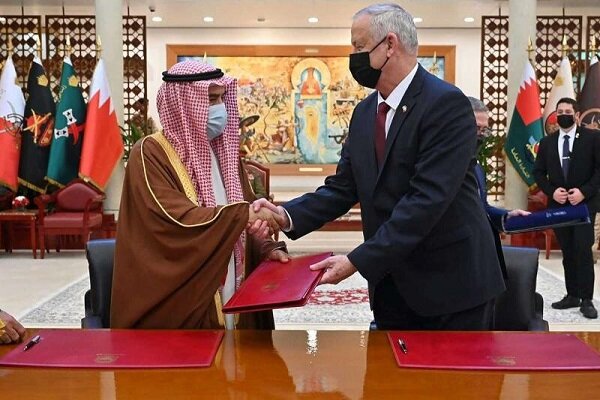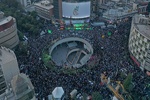But Israel’s hurry to jump in dampened hopes for a rapid thaw.
A string of missile and drone attacks against the UAE over the last few weeks significantly has flamed tensions in the already boiling region of the Persian Gulf. The attacks were claimed by the Sanaa-based government, a move that grabbed global headlines as the UAE had not come under attack for a long time.
The Yemeni government said its attacks were launched in retaliation for the UAE’s involvement in the fighting in the Shabwa and Marib governorates of Yemen. With backing from the UAE, a Yemeni militant group known as the Giants Brigades made remarkable advances in Shabwa and then Marib.
Yemen’s Ansarullah movement warned the UAE to stop backing the Brigades. When the UAE paid no heed to Ansarullah's warning, the movement struck targets deep inside the UAE. Overall, Sanaa launched three missile and drone attacks against the UAE, with the third attack coming after the Brigades announced the end of their offensive and undertook redeployment of forces to areas far away from the conflict zone.
Also, the third attack took place during a visit by Israeli President Isaac Herzog to the UAE. The visit was intended to show unity with the UAE on the part of Israel. Despite warnings from Israel’s security apparatus about potential attacks during the trip, President Herzog pressed ahead with the scheduled visit with great fanfare. Back in Israel, officials were keen to overplay their sympathy with the UAE in the wake of the attacks despite the fact that Israel has refused to provide the UAE with air defense systems such as the so-called Iron Dome.
Sensing an opportunity to further strengthen their position in the strategically important Persian Gulf region, the Israelis doubled down on their efforts to cement Israel’s ties with some of the Persian Gulf’s Arab states, knowing that Israel’s influence in this region would certainly strain the Arab states’ relations with Iran. At the end of the day, Israel and Iran are just like oil and water- they just don’t mix together at least in the Persian Gulf’s troubled waters.
Iran has warned against Israel gaining a foothold in the region for a long time, particularly after the UAE and Bahrain embarked on a normalizing path with Israel in 2020.
At the same time, Iran sought to patch up its relations with Arab states across the Persian Gulf. Five rounds of talks between Tehran and Riyadh and a remarkable visit by UAE National Security Advisor Sheikh Tahnoon bin Zayed Al Nahyan to Tehran bear witness to Iran’s efforts in this regard.
But these efforts face growing challenges given the UAE and Bahrain’s willingness to open the way for military and security cooperation with Israel. Despite Iran’s repeated warnings, Abu Dhabi and Manama continue to give Israel a foothold in the region. For instance, Bahrain signed a defense agreement with Israel on Thursday that was billed in the media as “sending a message toward arch-enemy Iran.”
The agreement was struck during a visit by Israeli Defense Minister Benny Gantz to Manama, where he met with Bahraini Defense Minister Abdullah Bin Hassan al-Noaimi.
The agreement was hailed by Israeli media as signaling to Iran that “the alliance against it is growing and public.”
The Arab state’s signing of an agreement of military nature comes against a backdrop of continued Iranian warnings about the negative impact of Israel on security in the Persian Gulf.
During his Thursday phone call with Emirati counterpart Abdullah bin Zayed Al Nahyan, Iranian Foreign Minister Hossein Amir Abdollahian warned that “the presence of the Zionist regime in the region poses a threat to all countries and the region.”
The Iranian foreign minister called for efforts to prevent the crisis-creating elements from gaining a foothold in the region.
The Israel issue also was the main theme in the December meeting between Iranian President Ayatollah Seyed Ebrahim Raisi with Sheikh Tahnoon. “There should be no obstacle in the relations between the two Muslim countries of Iran and the UAE, and these relations must not be influenced by the outsiders,” Ayatollah Raisi told the visiting Emirati official. “The Zionists [Israelis] in the region are pursuing their sinister goals and wherever they can find a foothold, they will turn it into a tool for expansionism; therefore, regional countries should be careful.”
First Published in Tehran Times


























Your Comment